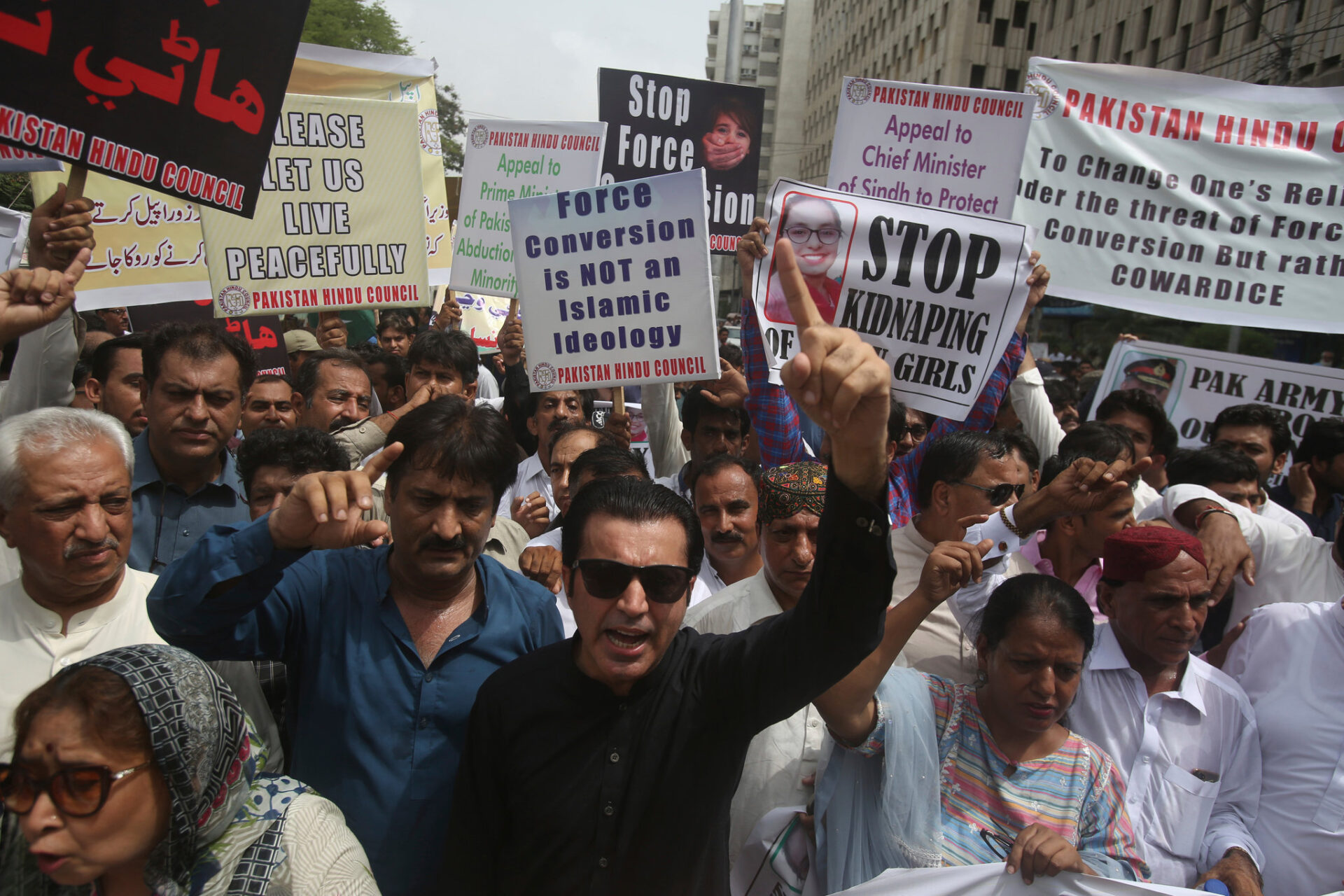- The negation of Hindu identity by using the prefix “non” is so normalised and internalised by the State that it is never realised that this excludes and otherises the Hindus residing in Pakistan, making them second-class citizens
- The State needs to rise against the extremist elements in society and support a narrative of inclusivity and equality
If I had prodigious wisdom as a child, I would have asked my parents why their ancestors chose this part of the border when the majority of the Hindus were moving from the newly-created Pakistan to Hindu-majority India in 1947. I am certain they would have answered that it was due to their love for the land, unchallenged loyalty, ancestral abodes, and deep attachment to their motherland, which they endearingly called Dharti Mata, that they decided to stay here.
So, 5 million Hindus are living in Pakistan by choice today – it does not matter if the choice they made was right or wrong. What is important is that they are not living here by any compulsion or coercion. However, in return, they are persecuted, marginalized, and otherized. They are labeled as “traitors”, “Indians” and “RAW agents”. They are forced to live in fear and a sense of insecurity.
Ironically, Pakistani Hindus who are labelled “Indians” in Pakistan are treated with contempt even when they visit India — where they face the same inhuman treatment because, for extremists in India, their Pakistani identity contradicts their Hindu faith.
So, we are people with no land.
If I raise my voice and write something against persecution, and atrocities committed against minorities or issues like the forced conversion of underage Hindu girls to Islam in Pakistan, my patriotism is questioned, and I am labelled as a RAW agent. If I write something against the Muslim minority in India, the Modi bhakts call me an ISI agent.
In the 75-odd years of post-partition history, the Hindu citizens of Pakistan lost their identity. They are identified in the Constitution, in the State’s narrative, and in public life as non-Muslims, infidels or kaafirs, Indians, and whatnot.
The negation of Hindu identity by using the prefix “non” is so normalised and internalised by the State that it is never realised that this excludes, and otherises the Hindus residing in Pakistan, making them second-class citizens. Elsewhere in the world, Muslims will never or hardly hear being referred to as non-Christians, non-Hindus, or non-Jews, but here they happily otherise me and negate my identity. Sometimes, I jokingly say Pakistan has a 96% non-Hindus and 4% non-Muslim population. But who cares what I say here?
Under the garb of the two-nation theory, the State discriminates against us through the Constitution, while instilling hatred against us through the curriculum as well.
The bigotry against Hindus is normalised and internalised to the extent that passing funny remarks against Hindus, and using derogatory words against them, their beliefs, and their deities are done very casually here. A Hindu residing in Pakistan feels this discrimination and hatred from people they come in contact with on a daily basis— be it a neighbour, a class fellow, a colleague, or anyone for that matter.
“Why don’t you convert to Islam?” asks our class fellow.
“We can’t share the same plate,” tells our co-worker.
“You can’t celebrate our religious festivals,” chides our neighbour.
The story does not end here: we have to prove our patriotism and review our certificate of loyalty whenever someone demands it. Whether it is the 14th of August, 23rd of March, 6th of September or any other national day, the majority of patriotic zealots expect Hindus to express their patriotism or loyalty publicly.
This is patriotism under the garb of jingoism.
My love for Pakistan should not require me to hate India or its people, but the state’s narrative demands I condemn my neighbours, so I could be considered a loyal citizen.
If I highlight the atrocities committed against Hindus in Pakistan, I am quickly countered with a cliched argument: “Don’t you see what is happening with Muslims in India?” Atrocities against Muslims or other minority communities elsewhere are equally condemnable, but using those incidents to justify violence in your own country is hypocritical.
The State needs to rise against the extremist elements in society and support a narrative of inclusivity and equality by guaranteeing that every religious group is given the same respect and their basic rights are protected.
The writer is a university student and an activist

